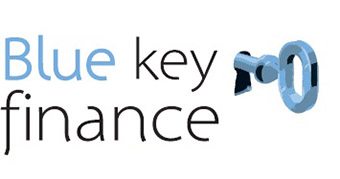Loans involving family & friends
Has a family member or friend asked you to be a ‘co-borrower’ or guarantee a loan for them? Before you say yes, think carefully – you could lose not only your money, but valuable assets such as your house or car.
What is a guarantor or co-borrower?
Co-borrower
You are a co-borrower if you sign a loan with someone else.
In most instances both you and the other co-borrower are jointly and individually liable for the debt. If the person you borrow the money with is unable to pay their share of the loan, you will be responsible for paying the full amount outstanding.
Guarantor
If a Bank is not willing to give a loan to a person on their own, they may ask for a guarantee. If you sign a guarantee for a friend or family member, you are known as the ‘guarantor’ of the loan.
When you sign your name as the guarantor, you are legally responsible for paying back the entire loan, (or a limited amount if it was a ‘limited guarantee’) if the other person cannot or will not make the repayments. You will also have to pay any fees, charges and interest.
As a guarantor, you don’t have the right to own the property or items bought with the loan.
Reasons you might have to say no
Think very carefully, before guaranteeing a loan. Is there another way you could help without becoming a guarantor? For example, could you contribute to a deposit so that a guarantee is not needed?
Consider how you will pay back the loan of your friend or family member can’t. Can you afford the repayments? Do you have savings you can use or assets you can sell to pay the debt? If you do have to use your own money or assets to pay off someone else’s loan, you could be risking your financial future.
What about your relationship with the borrower if something goes wrong? It may be better to say ‘no’ now and avoid damaging your relationship.
The effect on your future loans and credit report
You will need to tell your Bank about any loans you are a guarantor for, when you apply for more credit. They may take into account the loan repayments on the loan you have guaranteed when they go to assess your ability to repay a new loan. This may stop you getting a new loan even if the person who’s loan you are guaranteeing is making the repayments.
You may end up wit a bad credit record if you or the borrower cannot pay back the guaranteed loan. The loan will be listed as a deafult or non-payment on your credit report, making it hard for you to borrow more money for several years.
You may also affect your credit score, a number based on an analysis of your credit file, at a particular point in time, that helps a Bank determine your credit worthiness.
If you provide security, such as a mortgage on your home, to guarantee someone else’s loan, you may not be able to use your home as security for your own loan. You may even end up losing you home if you don’t pay out the guaranteed loan.
You may also be made bankrupt by the Bank. Even assets you haven’t offered a security for a guarantee may then be sold to pay the outstanding debt.
Questions you may ask the Bank before you sign the loan
Q. What type of loan am i guaranteeing?
Be very careful about guaranteeing a loan that has no specific payback time, such as an overdraft. This type of loan can potentially go on forever.
Q. Is the guarantee for a fixed amount of money, or is it for the total amount owing?
You are better off guaranteeing a fixed amount because you will know exactly what you owe. If you sign a guarantee for the total amount owing, you will be legally responsible for what the borrower owes now and in the future. This could include interest, fees, charges and penalties. If you think there has been an increase in the amount you agreed to guarantee without your consent, seek legal advice straight away.
Q. Exactly how much am i guaranteeing?
The guarantee should clearly describe how the amount of money you owe will be calculated if the worst happens and the borrower does not pay. If you are not comfortable with the amount, ask if you can reduce it.
Q. Do I have to put up assets as security?
If the loan is not for personal, household or domestic purposes, you may be asked to put up an asset, such as your house, as security. This means the Bank can sell your house to pay the debt if the borrower defaults on their loan.
Q. What should the loan contract tell me?
Get a copy of the loan contract from the Bank. It should tell you:
- The amount of the loan
- The interest, fees and charges
- Whether the loan is secured (where the borrower has to put up an asset, such as their house, as security)
- How long the borrower has to repay the loan
- The amount of the repayments
How to get help and free legal advice
Never let a family member pressure or force you into signing anything. If you’re feeling pressured, seek financial counselling – it’s a free and confidential service.
Challenging a claim
In certain situations, guarantors may be able to challenge a claim even though they have signed contracts.
You should get advice immediately if you:
- Only agreed to sign through pressure or fear
- Suffered from a disability or mental illness at the time of signing
- Did not receive legal advice before signing and did not understand the documents or the extent of the risk you were taking on; for example, you thought you were guaranteeing a certain amount but a much larger amount is now being claimed.
- Believe the Bank or Broker used unfair tactics, or tricked or misled you




Leave a Reply
Want to join the discussion?Feel free to contribute!